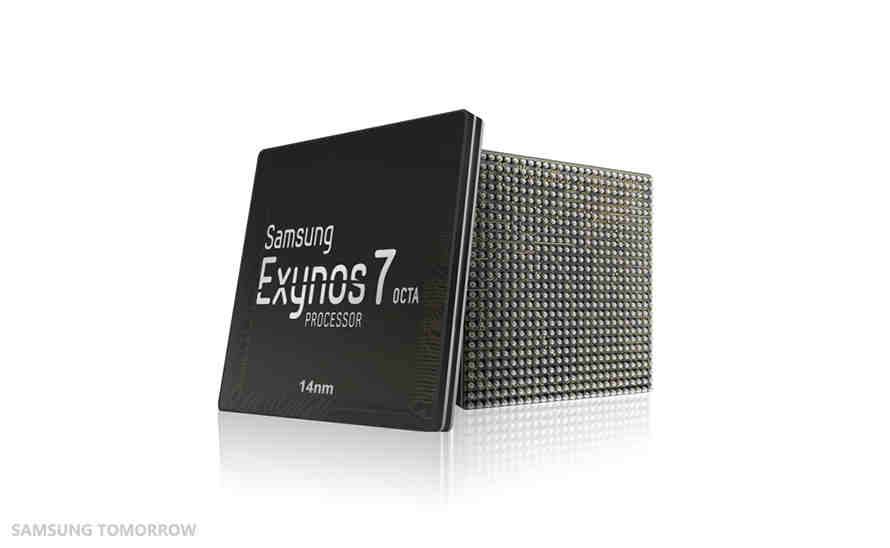
For a number of years, Samsung has been relying on its 20nm chip production process, giving them the current batch of high-performance Exynos processors they are using today. But with industry competitor Qualcomm still gaining the upper hand in terms of performance and name recall, Samsung is pushing forward with a new 14nm (read: smaller, less power consumption) SoC made through its patented FinFET process – the Exynos 7 Octa processor.
With the new form factor made possible by arranging transistors three-dimensionally (3D) instead of the traditional planar layout, Samsung claims impressive gains on the new processor. The new Exynos 7 Octa processor boasts a 20 percent increase in speed (probably compared to the fastest 20nm Exynos chip) and 35 percent less power consumption – not to mention the smaller size on the main PCB.
All told, those would be impressive improvements. These new 14nm procs would be altogether formidable when partnered with Samsung’s V-NAND memory, made from the same 3D FinFET process. The question is if Samsung can bring the production price down so that this duo can be put in real world products.

Qualcomm themselves are getting ready for some hits to their bottom line this year as some OEMs are having second thoughts about their spanking new Snapdragon 810 chipset because of rumored overheating issues. Qualcomm has put out a press release to calm their clients. How much that worked, we still have to see. At the moment, only the LG G Flex 2 is the sole carrier of the Snapdragon 810 chip.
VIA: Samsung









